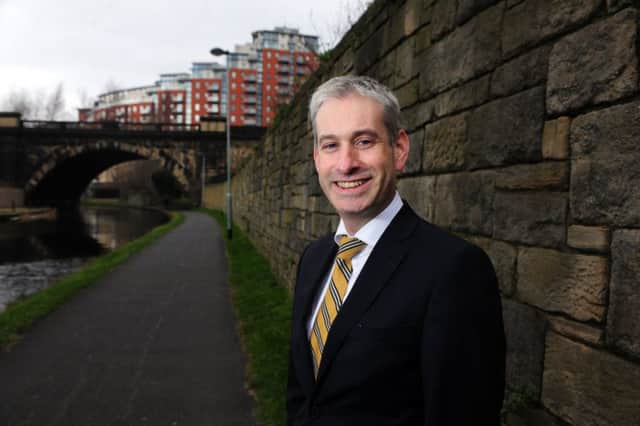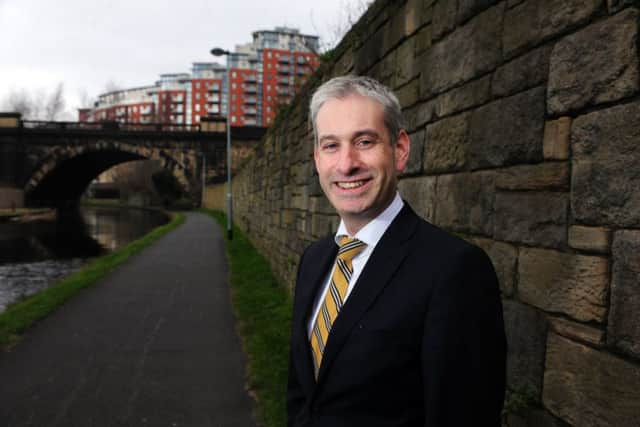Artificial intelligence is bringing jobs to Yorkshire's '˜Silicon Vale'


A Yorkshire-based telecoms software firm aims to double its sales over the next three years, with support from artificial intelligence.
Thirsk-based Teleware, which describes itself as being based inside Yorkshire’s own Silicon Vale, helps its blue-chip clients keep records of every text message and call made from their employees’ mobile phones. Companies have to retain this information to meet regulatory requirements.
Advertisement
Hide AdAdvertisement
Hide AdSteve Haworth, the chief executive of TeleWare, believes artificial intelligence can be a force for good, provided it is used wisely.


He told The Yorkshire Post: “We’ve spent the last five or six years in regulated markets collecting and recording voice and communications data.
“So our plans for the next three years is to double our revenues by going through a select number of partners to take some of the technology we have developed to help them grow and become more international. We’re taking the data and adding the value.”
Mr Haworth plans to embed artificial intelligence within Teleware’s systems.
Advertisement
Hide AdAdvertisement
Hide AdHe said: “So, for example, if you’ve had a conversation, or hundreds of thousands of conversations, then you can use artificial intelligence to say, ‘Show me the ones I should be worried about.’


“Then it can return those answers. It might be only five (conversations) you have to look at, instead of hundreds of thousands. It’s automating and augmenting the tasks that have to be done.”
Some critics of artificial intelligence have claimed that its development could lead to large-scale job losses. Mr Haworth is calling for a balanced perspective.
He added: “Any new technology is usually looked upon from both sides of the fence. You’ve got people who have a vested interest in it, (who) over-hype it. You’ve got the sceptics who have something to lose, who usually come in at the other end, and do it down.
Advertisement
Hide AdAdvertisement
Hide Ad“The reality is always somewhere in the middle of that. My view would be more towards the value of artificial intelligence, rather than the dangers of it.”
Artificial intelligence, can, for example make companies more productive, Mr Haworth said.
He added: “It can close some of that productivity gap. Regulated companies can actually use the regulations to drive better business practices.”
He said Teleware had a plan to double the size of the company’s revenue to £20m in 2020, while the staff numbers are also expected to rise from 75 to just over 100 over the next few years.
Advertisement
Hide AdAdvertisement
Hide AdThe new roles are expected to focus on sales and development jobs, including employees who will look at developing artificial intelligence.
He added: “There’s plenty of catchment areas for talent. We’ve got Middlesbrough and the North East, we’ve got York, Harrogate and Leeds. With or without Brexit I would have felt optimistic,’’ he said. “There’s a lot of great talent in the UK. The creative industries are now spilling into the other areas.”
Financial firms have faced growing volumes of regulation since the financial crisis. The Dodd-Frank legislation, for example, was passed by the US Congress in 2010 to crack down on “too big to fail” banks, or firms that would topple financial markets if they collapsed.
Dodd-Frank has tightened up the monitoring of the sales of derivatives which caused the crash of 2008. US regulators want financial services firms to keep a close eye on their mobile phone records. Dodd-Frank affects everybody involved in US markets.
Advertisement
Hide AdAdvertisement
Hide AdLast year, TeleWare announced that it was collaborating with Teesside University to share knowledge and drive innovation through a Knowledge Transfer Partnership. Through the KTP, TeleWare works closely with Teesside’s academics to focus on Big Data, machine learning and customer analytics. The KTP examines the best way to collect data from customer interactions.